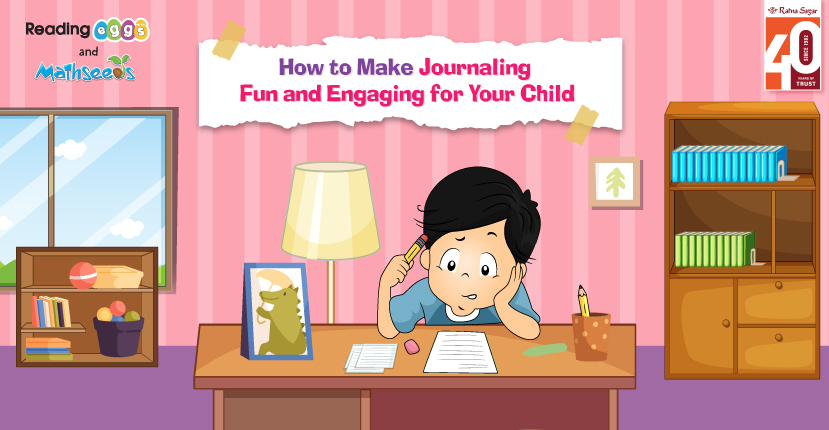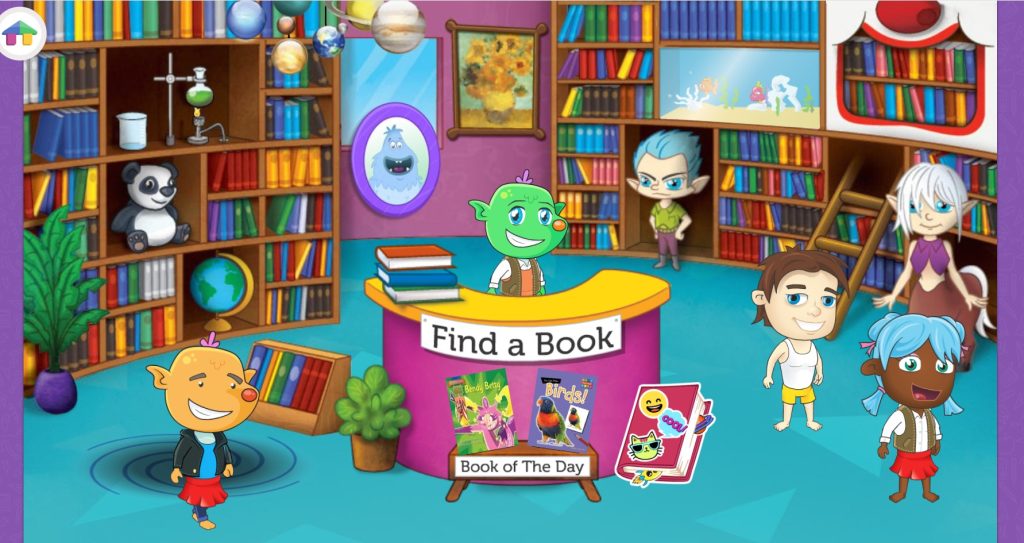
How to Make Journaling Fun and Engaging for Your Child
Journaling offers a treasure trove of benefits for children, from enhancing their writing skills to fostering emotional growth and creativity. But, let’s face it—kids can sometimes see journaling as just another task. To help transform journaling from a mundane chore into an exciting adventure, we’ve gathered some inventive and engaging strategies. Whether you’re dealing with a reluctant writer or a budding author, these tips will make journaling a fun, enriching and eagerly anticipated activity for your child.
1. Start with an Irresistible Journal
Allow your child to choose a journal that speaks to their interests. Whether it’s adorned with their favourite cartoon characters, decked out in glitter or features a sleek, modern design, a journal that resonates with them will make the act of writing feel special and inviting.
You may even encourage your little ones to create DIY (Do It Yourself) journals. Allow them to get crafty by letting your child create their own journal cover. Use stickers, markers, photos and other art supplies to decorate it. The more they personalise their journal, the more attached they’ll feel to it.
2. Integrate Artistic Elements
Encourage your child to include drawings, doodles and sketches. This can serve as a creative outlet and a way to visually express their thoughts and feelings, making the journal a canvas of self-expression. Provide them old magazines, glue and scissors for them to cut out pictures and create collages. This not only adds a tactile element to journaling but also helps them think creatively and reflect visually on their thoughts and experiences.
3. Use Engaging Prompts
Fuel your child’s imagination with fun and quirky prompts like “If you had a pet dragon, what adventures would you go on together?” or “Imagine you are an astronaut exploring a new planet. Describe what you see.” Such prompts turn writing into a delightful adventure.
Kickstart a story with a captivating beginning and let your child finish it. For example, “Once upon a time, in a land where it always rained candy, there lived a brave little squirrel…” This can be a great way to stimulate their narrative thinking.
4. Celebrate Achievements
Create a reward system to celebrate journaling milestones, such as filling a certain number of pages or journaling consistently for a month. Rewards could be simple, like stickers, a new set of colourful pens or a special outing.
5. Create a Sensory Experience
Introduce scented markers or stickers and encourage the use of textured papers or materials in their journal. Incorporating sensory elements can make journaling a more immersive and enjoyable experience. Play background music that fits the theme of their journaling. Music can help set the tone and mood, making the writing process more enjoyable and inspiring.
Book 14 days FREE trial For Reading Eggs with Ratna Sagar
6. Allow for Creative Freedom
Make it clear that there are no strict rules for journaling. They can write, draw, collage or even just scribble. This freedom allows them to express themselves without fear of making mistakes, encouraging creativity and authenticity. Encourage them to explore different journaling styles, such as writing stories, poems, lists or creating comic strips. Mixing up the approach can keep journaling fresh and prevent it from becoming monotonous.
7. Draw Inspiration from Real Life
Use nature as inspiration. Encourage your child to write about their observations, feelings and discoveries during outdoor adventures. This not only enhances their awareness of the natural world but also provides endless content for their journal. Whether it’s a grand vacation or a simple day trip, suggest they keep a travel diary. They can document their experiences, add photos, draw maps and collect small mementos to glue into their journal, turning it into a personal travelogue.
8. Promote Positive Reflection
Introduce the concept of writing about things they are thankful for. This practice helps cultivate a positive mindset and encourages reflection on the good things in life. Encourage them to write about their accomplishments and proud moments, no matter how small. Reflecting on their successes can boost self-esteem and foster a sense of pride and achievement.
Remember, the goal is to make journaling an enjoyable and pressure-free experience. Encourage creativity, celebrate their efforts, and watch as their journaling journey unfolds into a rich tapestry of thoughts, dreams and discoveries.
With Reading Eggs and Mathseeds, you can make journaling even more enjoyable by combining it with a reading habit for kids. The programme offers the Reading Journal, an interactive and customisable tool designed to help kids build a deeper connection with the books they read, encouraging them to read for pleasure.

It allows children to track their reading progress and personalise their journal, enhancing their reading experience.
Features of the Reading Journal:
Personalisation: Children can decorate their journal pages with colourful stickers, tapes, and pins. They can also select a unique journal cover with a new theme each month.
Progress Tracking: The journal helps children showcase their reading achievements, fostering pride in their efforts.
Literacy-linked Rewards: Kids earn virtual sticker packs, downloadable certificates, and motivational reading posters as they reach reading milestones.

The Reading Journal aims to cultivate a love of reading, which has been shown to positively impact test scores, writing ability, comprehension and decision-making.

Benefits of Reading for Pleasure:
- Improved grammar
- Increased self-confidence as a reader
- Enhanced problem-solving abilities
- Broader general knowledge
- Improved mental health
- Increased school engagement and motivation
- Better communication with family and friends
Book 14 days FREE trial For Reading Eggs with Ratna Sagar
With these numerous benefits, the Reading Journal is an excellent tool for any young reader looking to advance their reading skills. Encourage your child to explore the Reading Journal in the Reading Eggspress section of our Reading Eggs and Mathseeds programme today!
